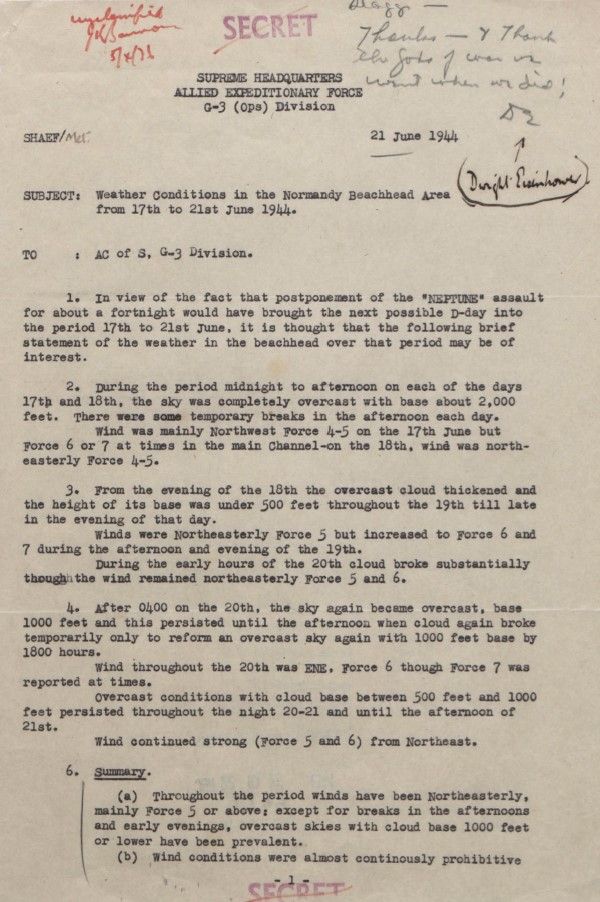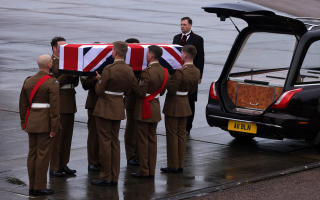
Man behind storming of the beaches on D-Day gets storm named after him

An RAF adviser who provided to General Dwight D Eisenhower with crucial information ahead of the D-Day landings is having a storm named after him by the Met Office.
One of the storms in the upcoming 2024/25 season has been named in honour of Group Captain Sir James Stagg.
Gp Capt Sir James was the chief meteorologist responsible for advising on the weather for Operation Neptune in 1944, which paved the way for the liberation of France from German occupation.
Crucially, he advised Eisenhower to change the date of the landings from 5 to 6 June 1944.
He will be sharing the list with other notable figures of the last 170 years, including Lewis Fry Richardson, who devised a theory to use maths and physics to make weather forecasts, and Mavis Hinds, who worked on the earliest Met Office computers.
The Met Office's annual storm season lasts between September and late August.
Who was Group Captain Sir James Stagg?
Born on 30 June 1900, James Martin Stagg grew up in Musselburgh in East Lothian to parents Alexander Stagg and Helen Martin.
He graduated from the University of Edinburgh and joined the British Meteorological Office in 1924, where he became superintendent at the Kew Observatory.
Outside his success in academia, he was an active adventurer and became the leader of a British polar expedition to the Arctic in the winter of 1932/33.

Military Career
During the Second World War, he was attached to the Royal Air Force and was granted the rank of Group Captain.
In 1944, he was appointed meteorological adviser to General Eisenhower and the other allied commanders under the Supreme Headquarters Allied Expeditionary Force.
His knowledge of weather patterns and data was instrumental in planning military operations, particularly involving the navy and aircraft.
The importance of the weather during the war influenced decisions including Adolf Hitler's cancelling of Operation Sea Lion due to being unable to secure air superiority before the weather made crossing the English Channel impractical.
The D-Day Landings
The D-Day landings involved an Allied force of 5,000 ships and landing craft, with over 150,000 troops storming five beaches in Normandy.
However, the operation was originally planned for 5 June 1944 until a decision was made to delay it by a day based on the information provided by Gp Capt Sir James.
As Chief Meteorological Officer, he led a team of meteorologists to provide a weather forecast specifically to determine when the best time for the offensive was.
During this task, he and his team had to consider all the elements that would affect operations and draw up what the ideal conditions for the D-Day landings could be.
His advice on weather conditions led to the postponement of the D-Day landings to 6 June.
Based on his information, planners identified the narrow weather window on the day which allowed the invasion to go ahead.
After the war, this significant contribution was recognised on both sides of the Atlantic.
When his military career ended, he was elected to the Royal Society of Edinburgh and president of the Royal Meteorological Society.
On the 75th anniversary of D-Day, a memorial plaque in his honour was unveiled at Dalkeith Library.
Storm James
The Met Office described his forecast as "the most important forecast the Met Office has ever produced".
Storm James will be the 10th storm expected to occur in the coming year.
The Met Office assigns names to storms to communicate their severity to the public and ensure public safety.









